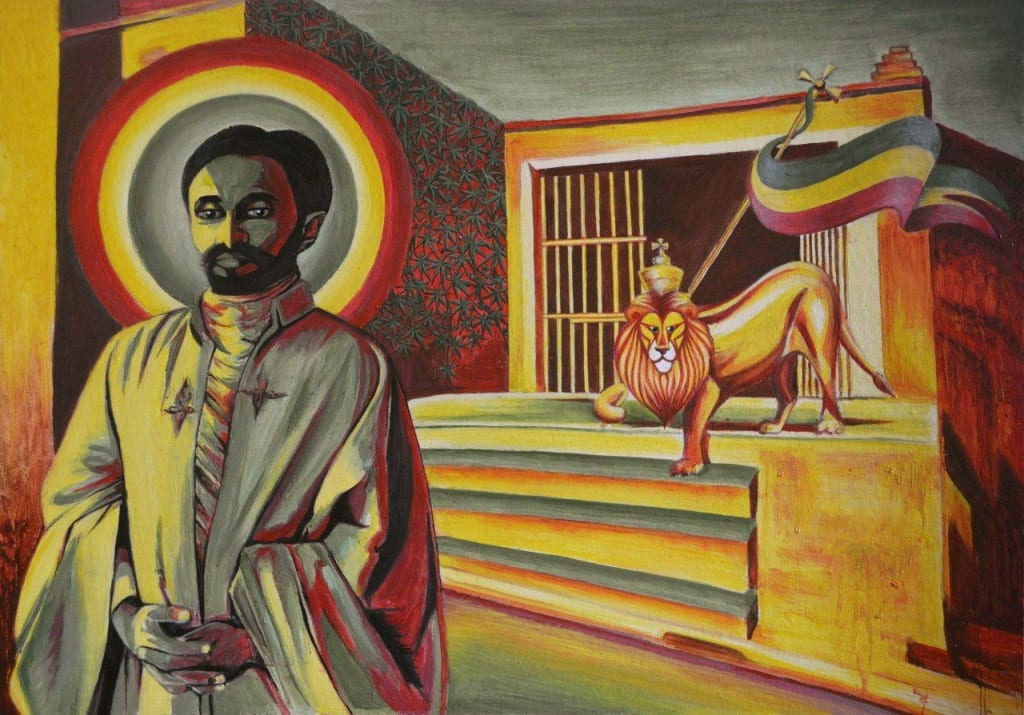
Jah Rastafari is a spiritual movement that emerged in Jamaica during the 1930s. Its followers believe in the divinity of Emperor Haile Selassie I of Ethiopia and the importance of living a peaceful and harmonious life. Central to Jah Rastafari's teachings is the belief in forgiveness and letting go, as a means of achieving spiritual healing and positive energy.
In this article, we will explore Jah Rastafari's teachings on forgiveness and letting go, their significance in Rastafarianism, and how they can be applied to our everyday lives. We will examine the role of forgiveness in spiritual healing, the importance of letting go for personal growth and development, and how combining these two concepts can lead to a more fulfilling life. By the end of this article, you will have a deeper understanding of Jah Rastafari's teachings and techniques for practicing forgiveness and letting go in your own life.
Jah Rastafari's Teachings on Forgiveness
Jah Rastafari's teachings on forgiveness are an integral part of the movement's spiritual beliefs. Forgiveness is seen as a powerful tool for achieving inner peace and healing emotional wounds. In Rastafarianism, forgiveness is defined as the act of letting go of resentment, anger, and bitterness towards oneself and others. It is a process of releasing negative emotions and embracing positive energy.
The role of forgiveness in spiritual healing is crucial in Rastafarianism. It is believed that holding onto negative emotions can lead to physical and emotional distress. Forgiveness is viewed as a way to release oneself from the burden of negative emotions and move towards spiritual healing. By letting go of grudges and resentments, individuals can achieve a sense of inner peace and happiness.
Jah Rastafari's teachings emphasize the importance of forgiveness in creating positive energy and a happier life. Forgiving oneself and others can lead to a more positive outlook on life, healthier relationships, and increased feelings of self-worth. By practicing forgiveness, individuals can attract positive energy and abundance into their lives.
There are many examples of forgiveness in Rastafarianism. One of the most well-known is the story of Bob Marley's forgiveness of his attempted assassin. Despite being shot by a gunman, Marley refused to press charges and forgave his attacker. This act of forgiveness is seen as a powerful example of how forgiveness can lead to spiritual healing and a more peaceful world.
Jah Rastafari's teachings on forgiveness emphasize the importance of letting go of negative emotions and embracing positive energy. Forgiveness is seen as a powerful tool for achieving spiritual healing, inner peace, and happiness. Through examples like Bob Marley's forgiveness, Rastafarianism teaches that forgiveness can lead to a more peaceful and harmonious world.
Jah Rastafari's Teachings on Letting Go
Jah Rastafari's teachings on letting go are an important aspect of the movement's spiritual beliefs. Letting go is defined as the act of releasing oneself from negative emotions and experiences that hold one back. It is a process of surrendering to the present moment and embracing change.
The importance of letting go for personal growth and development is emphasized in Rastafarianism. Letting go of negative emotions and experiences can help individuals grow and develop into their best selves. By releasing old patterns and beliefs that no longer serve them, individuals can move towards greater self-awareness and personal transformation.
Jah Rastafari's teachings also highlight how letting go can help one move on from negative experiences and emotions. Holding onto negative emotions such as anger, bitterness, and resentment can weigh individuals down and prevent them from moving forward in life. Letting go allows individuals to release these emotions and experiences, freeing themselves to experience new opportunities and positive experiences.
There are many examples of letting go in Rastafarianism. One such example is the belief in the impermanence of material possessions. Rastafarians believe that material possessions do not bring true happiness and that letting go of attachment to material goods can lead to greater spiritual growth and happiness. The story of Bob Marley's abandonment of material wealth is seen as an example of this belief.
The teachings of Jah Rastafari underscore the critical significance of letting go and surrendering to the present moment. Jah Rastafari considers letting go as an essential tool that helps individuals achieve personal growth and development by releasing themselves from negative emotions and experiences. Rastafarianism emphasizes that the act of letting go can lead to greater spiritual growth and happiness, as exemplified by beliefs such as the impermanence of material possessions.
Combining Forgiveness and Letting Go for Spiritual Healing
Combining forgiveness and letting go can be a powerful tool for spiritual healing in Rastafarianism. Forgiveness is the act of releasing oneself from anger, bitterness, and resentment towards those who have wronged them. Letting go, on the other hand, involves releasing oneself from negative emotions and experiences that no longer serve them.
In Rastafarianism, combining forgiveness and letting go is seen as a way to achieve a more fulfilling life. By forgiving others and releasing negative emotions and experiences, individuals can create a space for positive energy and new experiences to enter their lives.
Practicing forgiveness and letting go in everyday life can be challenging, but there are techniques that can help. One technique is to focus on the present moment and let go of thoughts and emotions related to past events. Another technique is to cultivate a sense of empathy towards others, which can help in the process of forgiving them.
Rastafarianism offers many examples of forgiveness and letting go. One such example is the story of Peter Tosh, who forgave the police officers who beat him and his band members. Tosh's forgiveness allowed him to move past the negative experience and continue to spread his message of love and positivity.
Combining forgiveness and letting go is a powerful tool for spiritual healing in Rastafarianism. By forgiving others and letting go of negative emotions and experiences, individuals can create a space for positive energy and new experiences to enter their lives. Techniques for practicing forgiveness and letting go in everyday life include focusing on the present moment and cultivating empathy towards others. The story of Peter Tosh is just one example of how forgiveness and letting go can lead to a more fulfilling life.
Conclusion
Jah Rastafari's teachings on forgiveness and letting go are powerful tools for achieving inner peace and emotional healing. Forgiveness allows individuals to release themselves from negative emotions towards others, while letting go enables them to release negative experiences and emotions that no longer serve them. By combining these practices, individuals can create a space for positive energy and new experiences to enter their lives.
It is important for readers to practice forgiveness and letting go in their own lives, even if it may be challenging at times. By doing so, they can cultivate a sense of empathy towards others and create a more fulfilling life for themselves.
In Rastafarianism and beyond, the benefits of forgiveness and letting go are clear. By releasing oneself from negative emotions and experiences, individuals can achieve greater spiritual growth and happiness. The call to action for readers is to apply these teachings in their own lives and experience the positive impact for themselves.
As a final note, if you’re interested in exploring Jah Rastafarianism further and want to show your support for this spiritual movement, consider checking out the collection of Rastafarian clothes from Fifth Degree. These unique and vibrant pieces are a great way to express your connection to this spiritual tradition and connect with like-minded individuals in the Rastafarian community. Check out their website today to learn more and browse their collection.






Comments
There are no comments for this story
Be the first to respond and start the conversation.